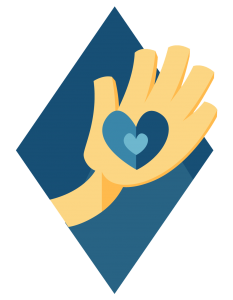The POWER Program is designed to strengthen digital literacy skills among parents in the Charlotte Mecklenburg Schools. But building community may be its greatest contribution.

POWER, an acronym for Parents Operating With Educational Resources, is a six-week program that started in late January with parents in five schools — Bruns Academy, Druid Hills Academy, Reid Park Academy, Westerly Hills Academy, and Whitewater Middle School. Specific subjects included how parents can use technology to communicate with educators, and how it’s used in classrooms, privacy, security, and social media.
The program helps parents bewildered by the volume of digital tools available and ways to use them within the school system. The school system, Digital Charlotte, the Arthur Vining Davis Foundation, and two schools at Queens University — the Knight School of Communication and the Cato School of Education – collaborate on POWER. The first parents to graduate say it clarified digital issues, but also resulted in something even more important.
“For parents, the most important thing to come from this program is camaraderie,” said Jacob Blake, vice president of the Parent Teacher Association at Bruns Academy. “That you’re not the only parent out there that has problems with their children — every child has problems – they’re not the same problems, but we all have them. Getting together like this helps you know that you’re not alone. Just to be in this atmosphere, and the cohesion of the group. It’s almost like an extended family. We’ve learned together along the way. And when you learn together with a group, you stay together with that group.”
“We are the first class doing this program at Bruns,” Blake said. “The first class must leave a legacy. And the only way we leave a legacy is to leave more than ourselves, and I challenged everybody in the class to bring three parents back, the next time it’s offered.”
Online tools for parent engagement with schools are simple, he said. They just show that “school and communication is OK. It’s not bad to communicate with your children’s teachers. It’s not bad to know the principal’s first name. It’s not bad to be able to email them and tell them what you’re thinking. That’s your right as a parent.”
Early investments were in a “train the trainer” model for teams from each of the schools, including technology facilitators, parent advocates, teachers, and media specialists. Queens faculty and staff worked on curriculum, and education students served as teaching assistants in the parent groups. Will Ward, community organizer for Digital Charlotte, directed partners, schedules, and resources, and Digital Charlotte secured refurbished laptop computers for all parents who completed training.
Assessment metrics to gauge curriculum effectiveness and parental engagement are now underway. Led by LaTarzja Henry, executive director of community partnerships and family engagement for the Charlotte Mecklenburg Schools, program partners are now evaluating next steps. Organizers are hopeful that once the story of the first group is told, additional resources will be available to continue the program. POWER won the 2018 Blue Diamond Award in innovation for business value in a non-profit organization. The Blue Diamond program is organized by technology, business, and education leaders in Charlotte.
“Over the last six weeks with the POWER Program, parents came in, and they really brought themselves,” said Jessica Smith, a former middle school science teacher who facilitated the parent class at Bruns. Jessica is now a member of the CMS technology team. “They were honest about the things that they were struggling with, with their students, with other students, with bullying, with cyberbullying, with social networks, and understanding what Snapchat is, and understanding what’s going on with Instagram. So many parents shared information and then other parents were able to say, ‘Me too. Oh gosh, that’s happening at my home too.’”
Kausandra Moody, Bruns Academy partnership coordinator, expects parents’ bonds created during the program to continue.
“They all realized that they can learn something from each other,” Moody said. “A sense of community, which for me is most important, and so they know who to contact and where to go and so forth. And they have a support system.”
